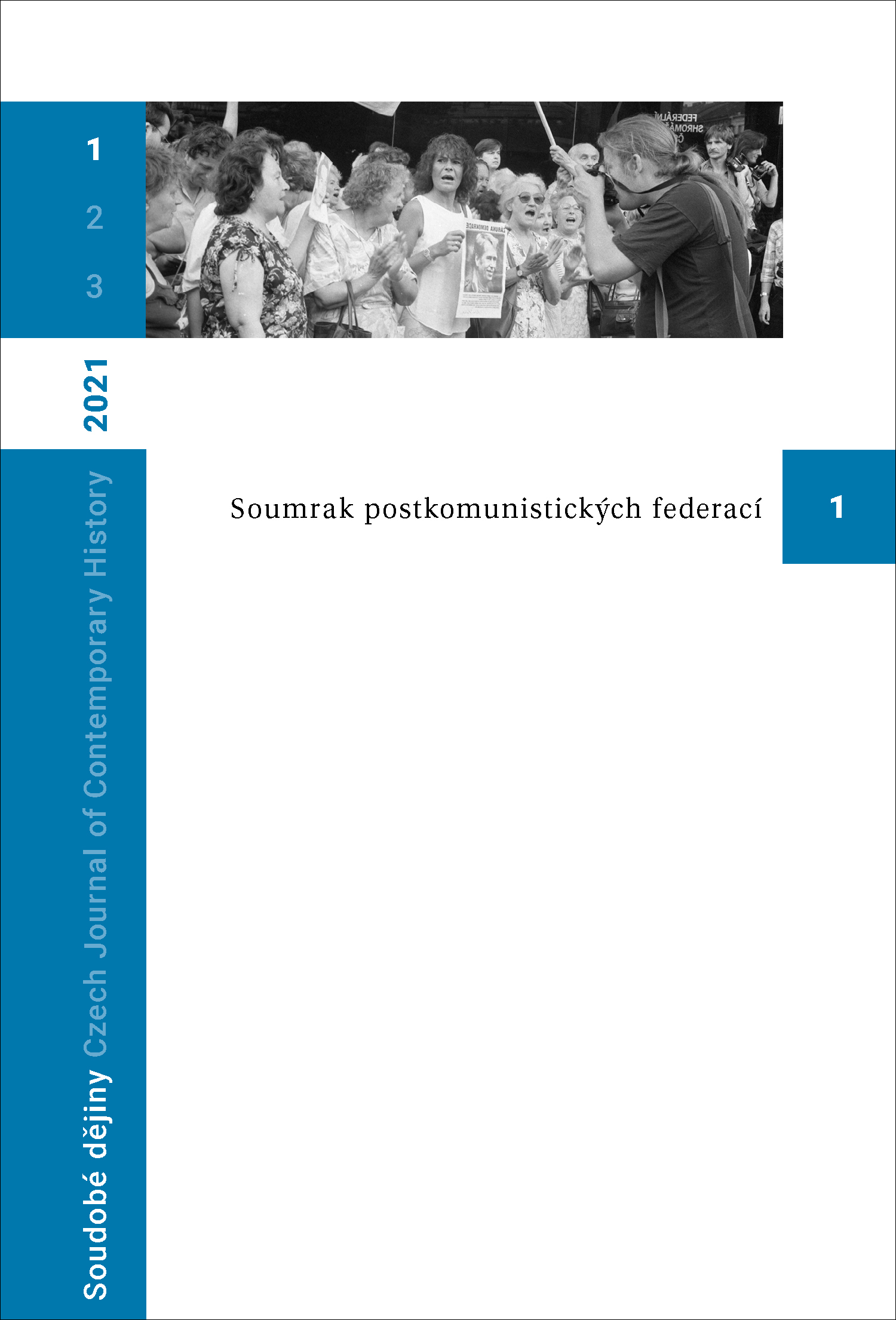Mosty technokratických kontinuít v Československu
Bridges of Technocratic Continuities in Czechoslovakia
From the End of Stalinism to Capitalist Transformation
Author(s): Matej IvančíkSubject(s): History, Social Sciences, History of ideas, Political history, Social history, Post-War period (1950 - 1989), Transformation Period (1990 - 2010), History of Communism, Post-Communist Transformation, Book-Review
Published by: AV ČR - Akademie věd České republiky - Ústav pro soudobé dějiny
Keywords: Czechoslovakia;experts;expert thinking;management;governance;technocracy;state socialism;post-Stalinism;Czechoslovak normalization;post-socialism;historical continuity;law science;psychotherapy
Summary/Abstract: The review analyzes contact areas and divergences of two publications with a similar topic: "Řídit socialismus jako firmu: Technokratické vládnutí v Československu,1956–1989" [Running Socialism Like a Company: Technocratic Governance in Czechoslovakia, 1956–1989] (Prague: Nakladatelství Lidové noviny and Ústav pro soudobé dějiny AV ČR, v. v. i., 2019) by Vítězslav Sommer and his two co-authors, and "Architekti dlouhé změny: Expertní kořeny postsocialismu v Československu" [Architects of the Long Change: Expert Roots of Post-Socialism in Czechoslovakia] (Prague: Argo, Filozofická fakulta Univerzity Karlovy, and Ústav pro soudobé dějiny AV ČR, v. v. i., 2019) by a team of six authors led by Michal Kopeček, who is also the book’s editor. The reviewer sees both collective monographs as the Czech historiographic feats of 2019, particularly from a methodological viewpoint. In his opinion, their key common feature is an emphasis on historical continuity, where by they question the traditionally perceived periodization of Czechoslovakia’s socialist and post-socialist history in the Central European context and also show how it was contributing to maintaining the power’s legitimacy. Sommer’s project also uses the continuity as a tool of comparison of different (socialist and capitalist) political regimes from the viewpoint of governance expertization, while Kopeček’s project permits advancing beyond the historical milestone of 1989 and finding sources of acceptance of the “liberal consensus” after the restoration of capitalism in the previous period of Czechoslovakia’s existence. The reviewer illustrates the above approach using selected studies from the latter publication, which deal with different spheres in which experts were active: legal science (with Kopeček’s provocative proposition of a “socialist legal state” – socialistický právní stát), psychotherapy, urbanism and ecology. He opines that both publications deal with contemporary history and the formation of capitalist systems in Czechoslovakia and Central Eastern Europe rather than the history of the previous regime. At the same time, they also present the history of the formation of languages of criticism of the restored capitalism, which the reviewer sees as their greatest contribution.
Journal: Soudobé Dějiny
- Issue Year: XXVIII/2021
- Issue No: 1
- Page Range: 224-231
- Page Count: 8
- Language: Slovak

